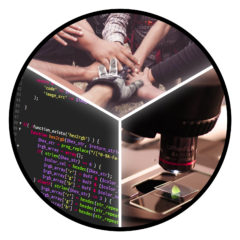Recently I’ve asked whether academia has conceptual frameworks for project (and general sciencing) management like software development has. One comment was that “science is more like a craft” and that extra bureaucracy is unnecessary. Some people brought up that science is apprenticeship-based activity, where next generations learn from elders.
Academic scientific process will greatly benefit from treating it as business projects. Yes, we face a lot of uncertainty. Yes, we need to be free to explore. But even such art as cooking have come up with concepts, such as Salt, Fat, Acid, Heat or that “baking is a precise science“. There are a lot of concepts that cooks have adopted universally, without trying to pass cooking steak as some sort of magick. It is not easy, it requires practice, but it is still doable.
Similarly in science, of course there is huge component of luck, skill, experience, and serendipity. Meanwhile, there are good practices, that has to be openly adopted and discussed as “standard of practice”. However, discussion of these practices should have only one goal – making communication easier; not trying to standardize the science. Similar to A Pattern Language we need “A Science Language” that will bridge gap between new scientists and those who have worked in the field for years.
If you wish to contribute to the creating of that language, try to answer, in written form, what does “PhD student” mean to you, what does “PhD thesis” suppose to look like, how can we manage lab or finances, or what are the potential roles people can hold inside academic research (e.g. consultant, technician, research professor etc). Academic researchers need to discuss these terms and agree on some framework to think and communicate about it.

One thought on “Academic science is not an art, and not a craft, and not apprenticeship-based”